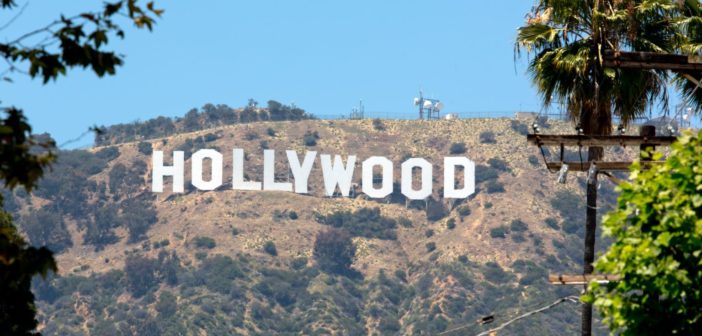By Brooke King, Staff Writer
For far too long, the film industry has been cranking out Oscar gems like Jonah Hex (starring Megan Fox) and Gulliver’s Travels (starring Jack Black). In complete contrast, Robert Redford’s The Conspirator brings back to the big screen the integrity and accuracy that has been sorely lacking.
The Conspirator depicts the story of Mary Surratt (Robin Wright), the only woman to ever have been convicted and hanged for the assassination of President Lincoln. The story infuses both the unraveling of the plot to murder Lincoln and the tumultuous times that proceeded after the end of the Civil War. Redford argued that the reason why he took on such a film was that it was a fresh take and a new angle on a story that had already been told.
“In The Conspirator, events trigger an emotional struggle between Mary and Frederick Aiken [Surratt’s attorney played by James McAvoy] that challenges their conceptions of duty, honor, and loyalty. How they respond to those challenges creates this compelling story. You have to find a new way to make history and make it interesting, and I think we’ve accomplished that,” said Redford.
While the plot itself is compelling and interesting, the intense accuracy of the film lends itself to the very best of what the historical film genre has to offer. The level of accuracy in the film stands alone. It is the film’s crowning achievement, and one that Redford expressed was his main concern. The script for the movie, while it had been around in Hollywood for some time, took James D. Solomon 18 years to research and write.
The challenge of writing the script, however, was only the tip of the iceberg. The accuracy of the production stems from Redford’s extraordinary gift for integrity within his films. When interviewed at the Associated Collegiate Press National Journalism Convention private press conference in Los Angeles, California on Mar. 5, Redford spoke about the length in which he took to create an accurate depiction of the events surrounding the trial of Mary Surratt.
“The facts surrounding the case we explore in The Conspirator, I believe they’re all historically accurate. They were drawn from the National Archives and transcripts from the trial and other sources. The writer, Jim Solomon, had worked on the script for something like 15 years and was meticulous about his research. We also hired historians to vet the script but history doesn’t record every single moment, every conversation, or thought. So you have to take some dramatic license and fill in those gaps, and do that in a true and dramatic way. That is interesting to me,” said Redford.
While there was little material to go on, Solomon used the trial transcripts and the diary entries of both Aiken and Surratt to use as firsthand accounts of the trial, time period, and circumstances of their own personal lives. Redford, known for his directorial and producing expertise, lends much of the talent to the actors for researching their characters.
“There were several times throughout production that I had to tell Justin Long [who played Union officer Nicholas Baker]it was the 1800’s, act and talk like it. In that regard, you have to honor the way people really spoke at that period of time. But you have to balance that with not going too far in that direction; otherwise, it sounds like somebody reading from a proclamation,” said Redford.
Producing history is hit or miss, and can ultimately be an utter disaster. However, Redford and his dream team make every detail of the film as accurate as possible. From the size of Surratt’s cell to the type of fabric and clothing she wore, no detail was spared, and no corners were cut. In the press release for the film producer Brian Falk addressed the issue of making everything as real as possible. “Every department on this picture has gone to great lengths to make sure that what you see in the frame is as close to what it would have been in 1865 Washington,” said Falk.
From the production designer to the costume designer, and from the director of photography to the director himself, everyone on Redford’s team worked to construct the most truthful historical photographic and cinematic references. One of the many agreements on the realistic approach to the film was the accuracy of how Washington, D.C. was depicted.
“When thinking about depicting Washington, circa 1865, I was struck by the difficulty of depicting it realistically. I wanted to show both how rural and undeveloped it was back then, while at the same time, showing how little times have changed,” said Redford.
The only place relevant that Redford found to depict this setting was Savannah, Georgia. However, the irony lies in the setting itself. General Sherman burned Atlanta to the ground during the Civil War but left Savannah so that the federal architecture could be preserved, and thus leaving Redford the perfect place to film the execution of the conspirators in the Lincoln assassination.
Though there are plenty of double standards on the set of the film, the double standards of justice lay within the film itself, leaving the audience to question the level of justice in today’s modern government. Redford explicitly cites that the merit of the film mirrors current political issues.
“The country at that time, almost 150 years ago, was in a very fearful place. The South and the North had been in such a vicious contest with each other and the peace was very fragile. So when Lincoln was assassinated, the fear of something uncontrollable breaking loose forced the Union leadership into a kind of behavior that’s very similar to some of our behavior over the last several years. The story of The Conspirator raises questions about a nation’s survival, and about how we respect our laws, and even our Constitution. I’m always drawn to stories about America, not just as a country, but as a “concept” of who we are or aspire to be. Those aspirations and ideals are the basis from which our country was founded. They have the ability to inspire greatness and at times, they have the ability to corrupt our judgment. It’s human nature, and I find stories that expose the humanity of our ideals fascinating. It’s these intimate human stories that become so revealing about America, and to me, this is one of those stories.”
When the cards are on the table and the Oscars come back around for another year, Redford’s The Conspirator is going to not only generate much deserved Oscar buzz, but will be an iconic film that will be remembered for its stunning cinematography, screenplay, and film’s seasoned director Robert Redford. Though known to most as the actor who played Butch Cassidy, Redford has brought a crucial implementation back to Hollywood as a director: the truth and accuracy of the film.





